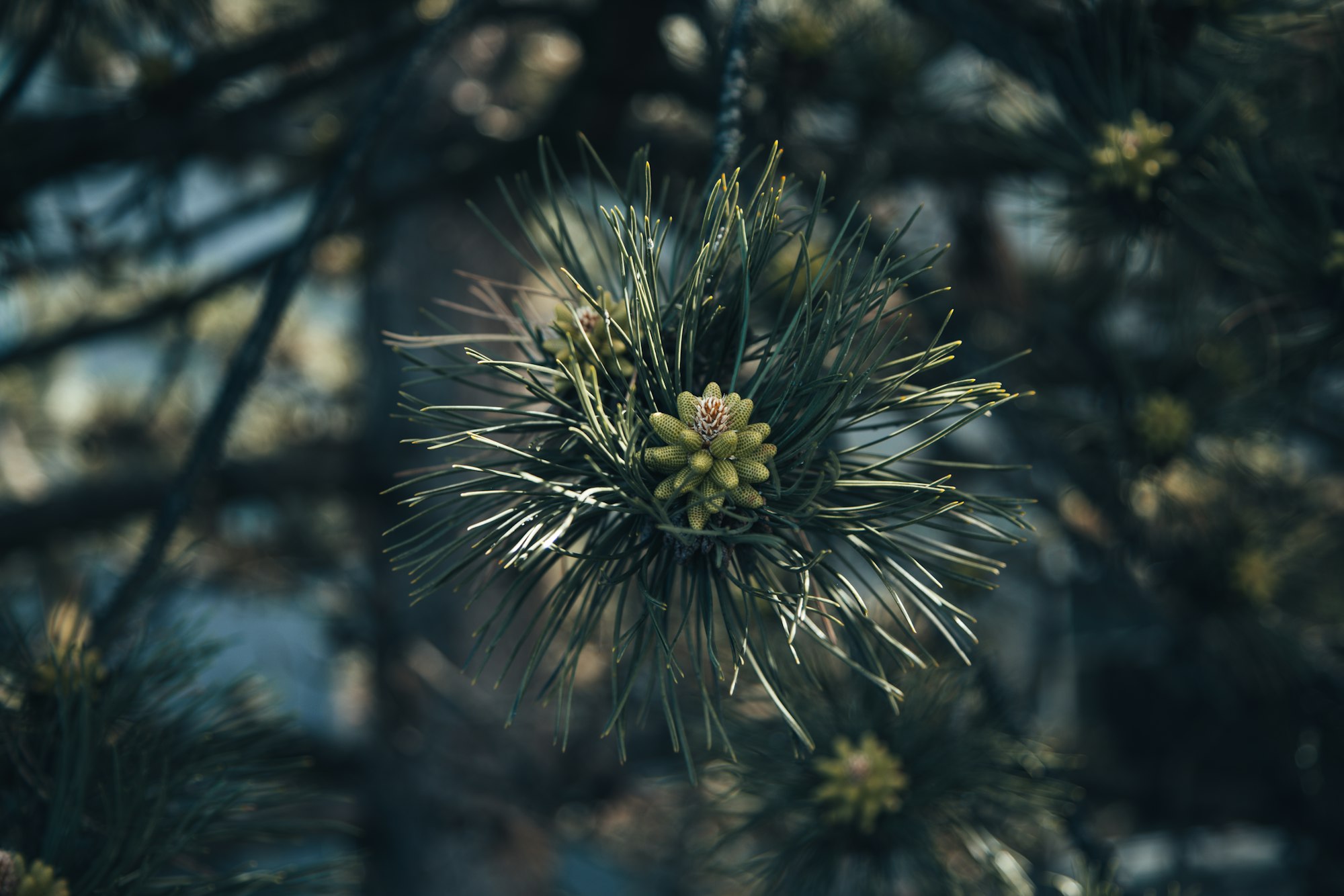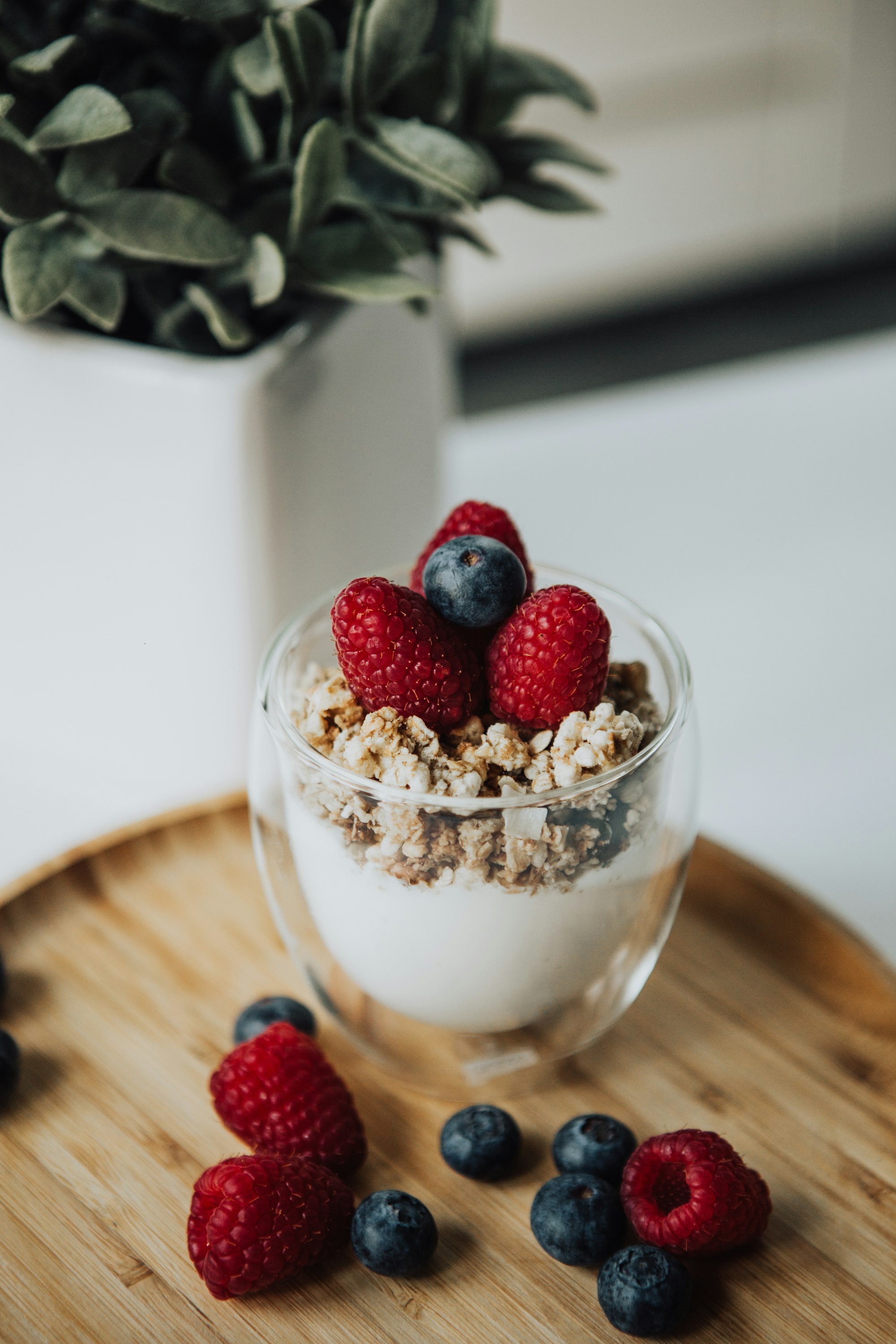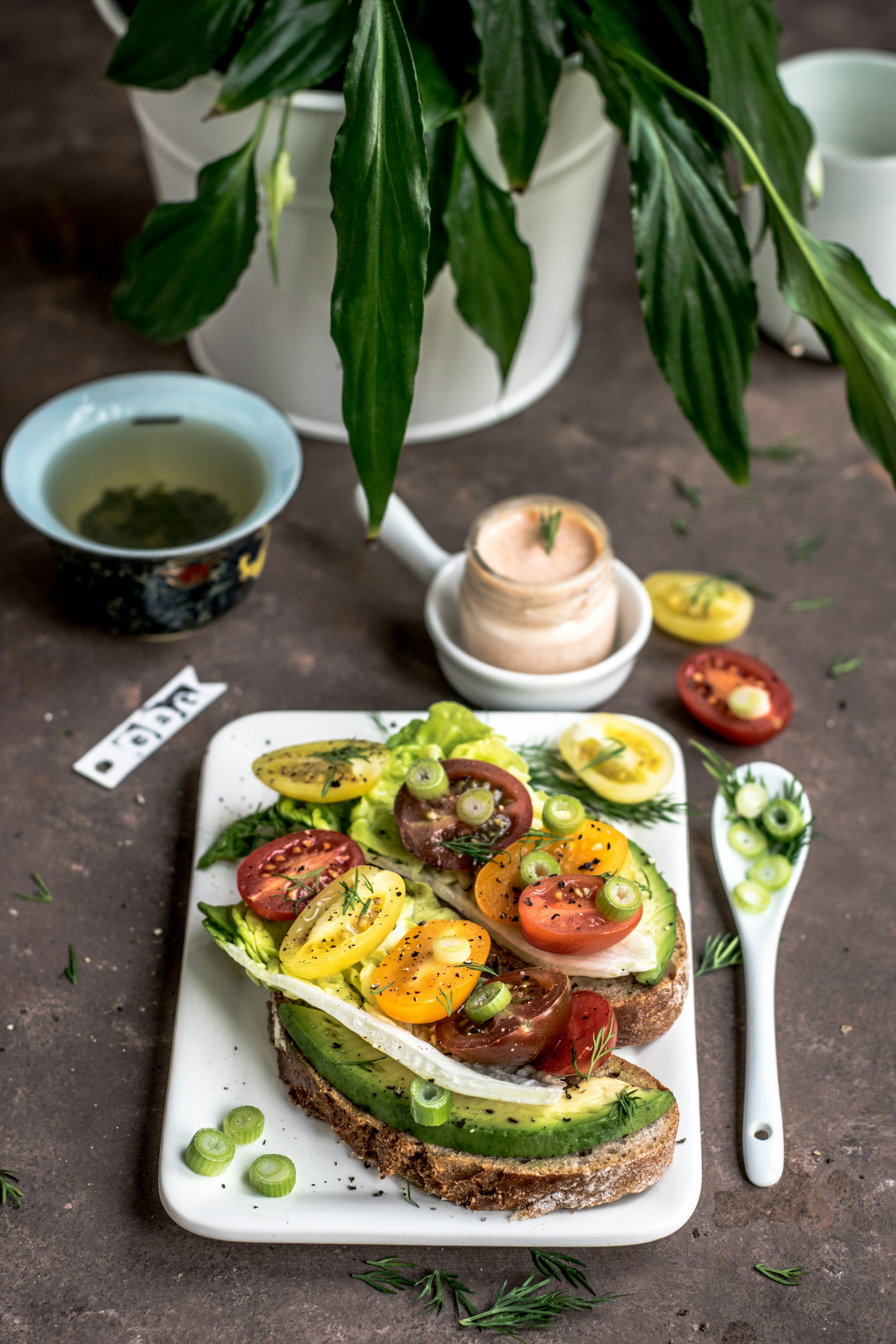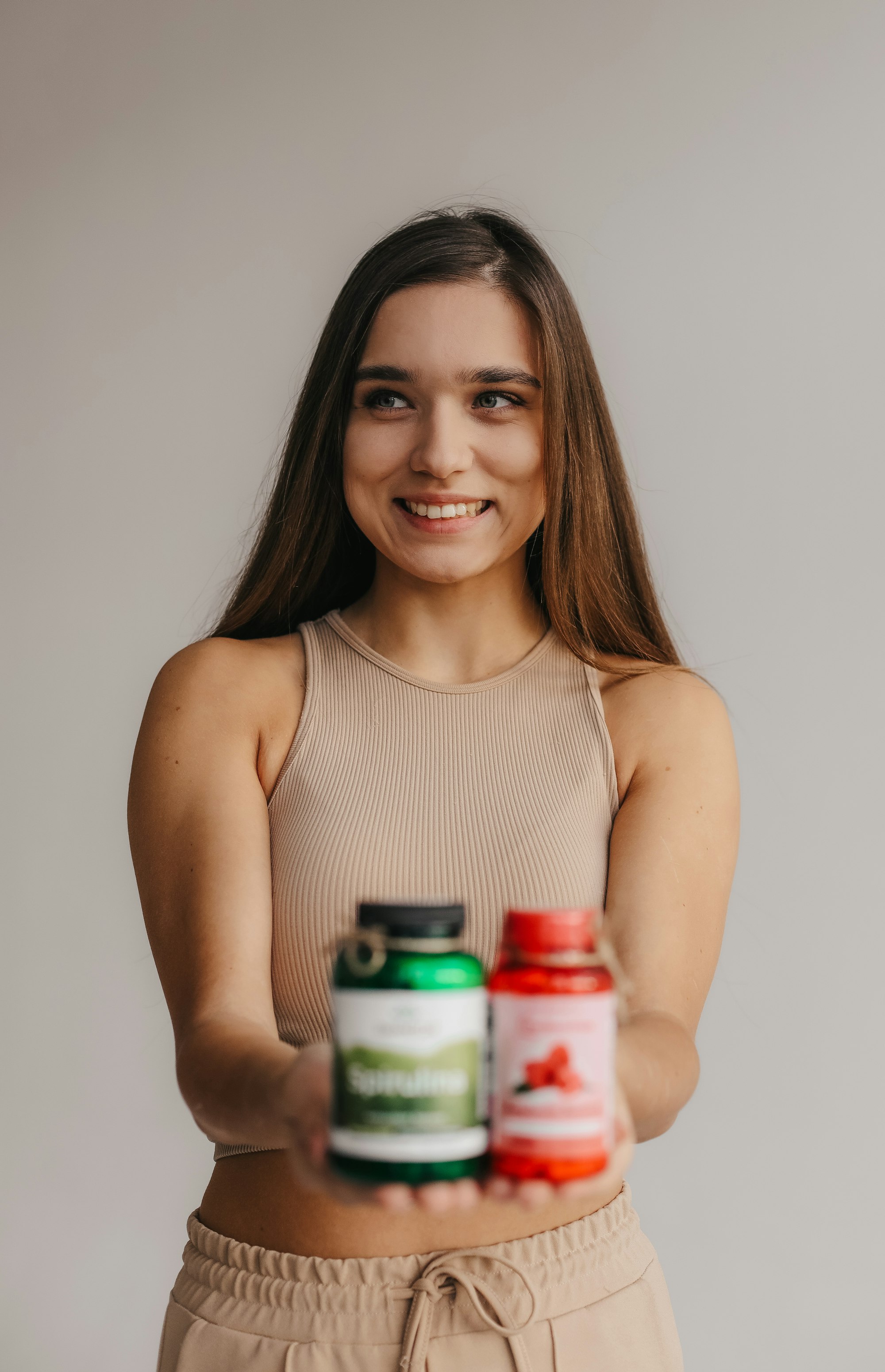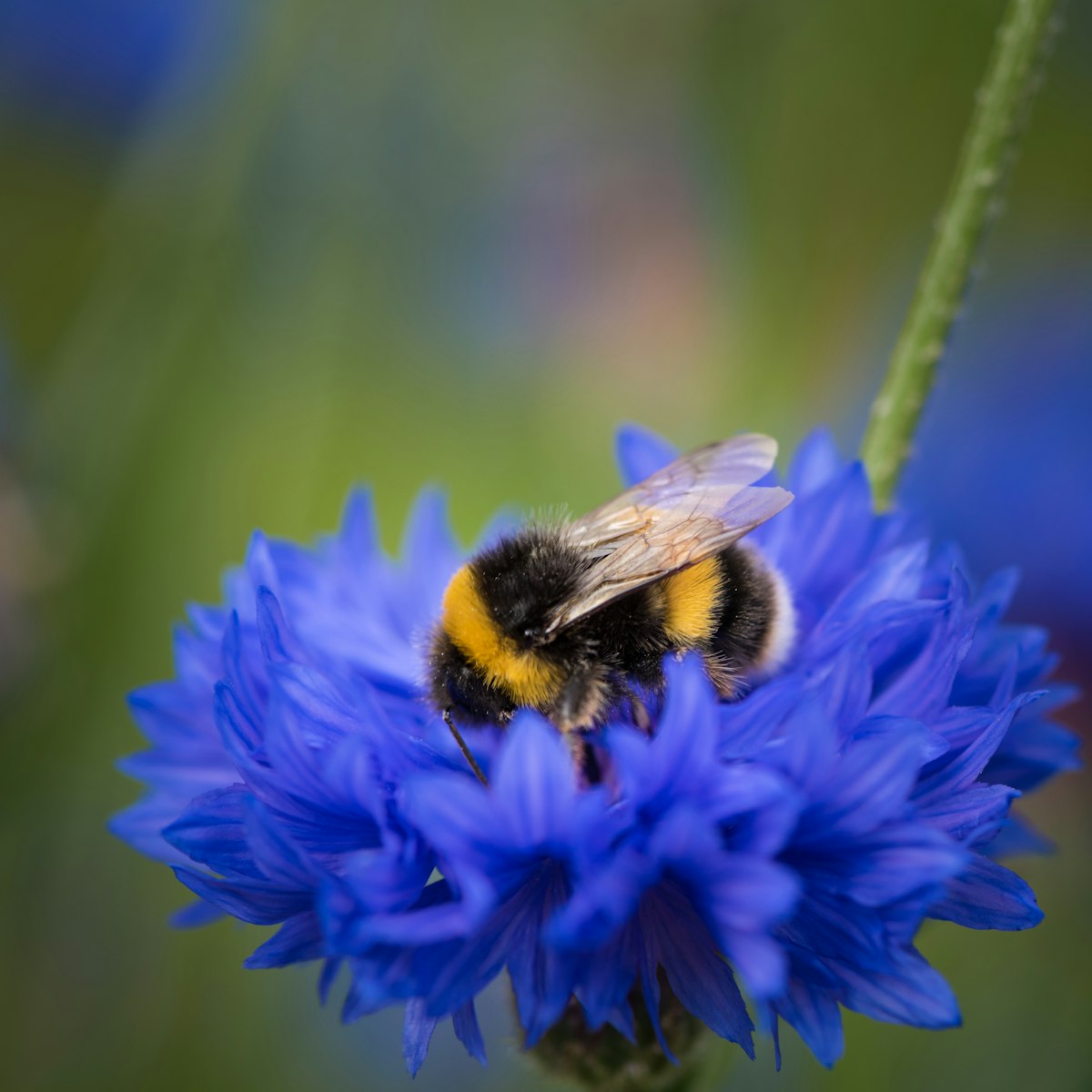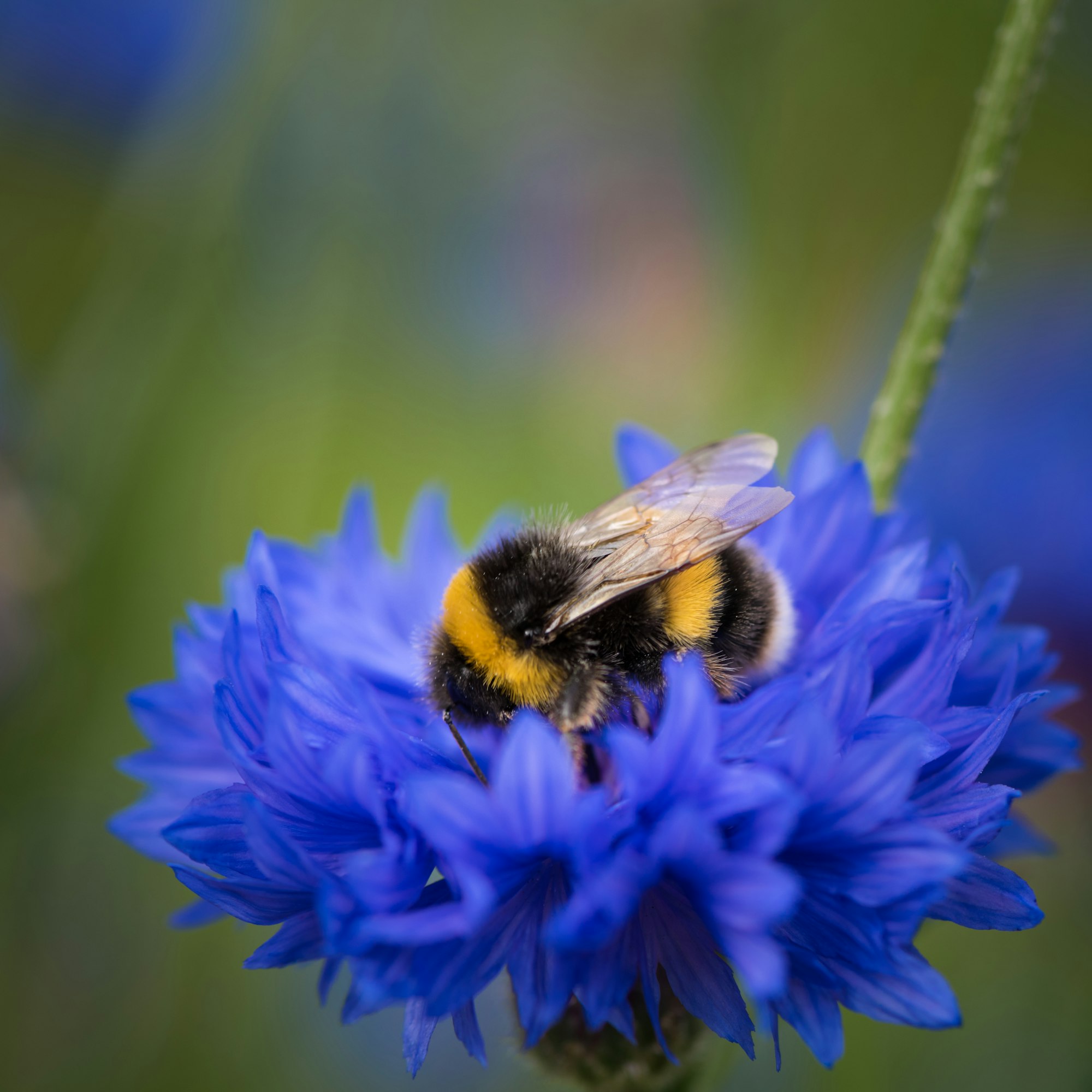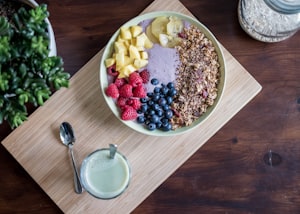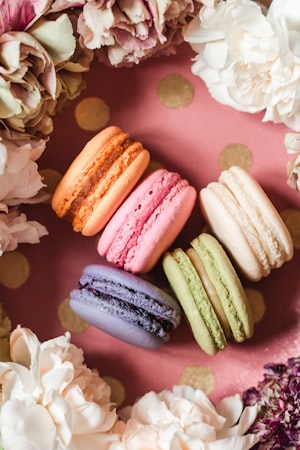Content Summary
In the realm of superfoods, one often stumbles upon exotic ingredients with remarkable health claims. However, there is a humble natural substance that has been buzzing in the health and wellness community for centuries bee pollen.
Derived from hardworking honeybees, bee pollen is a potent superfood packed with a plethora of nutrients and health benefits. Let's dive into the fascinating world of bee pollen and discover why it's considered a nutritional powerhouse.
What is Bee Pollen?
Bee pollen is the tiny granules of pollen collected by bees from the male parts of flowers. As bees visit flowers to gather nectar, they unintentionally carry pollen on their bodies, which then accumulates into small pellets on their hind legs. These pellets are collected by beekeepers and harvested as bee pollen.
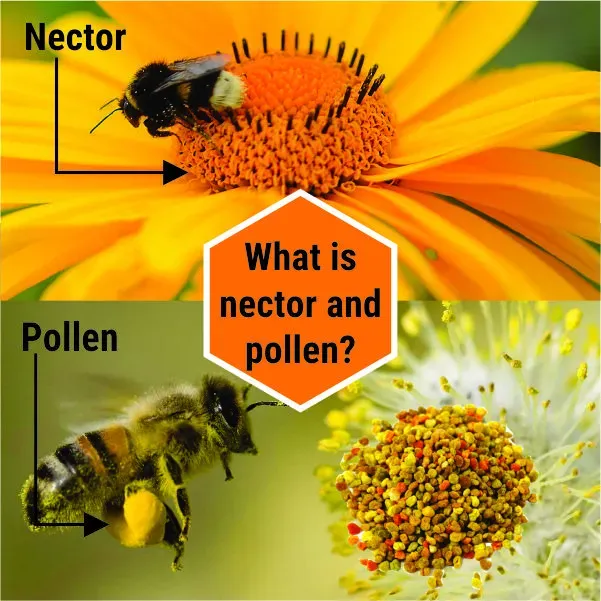
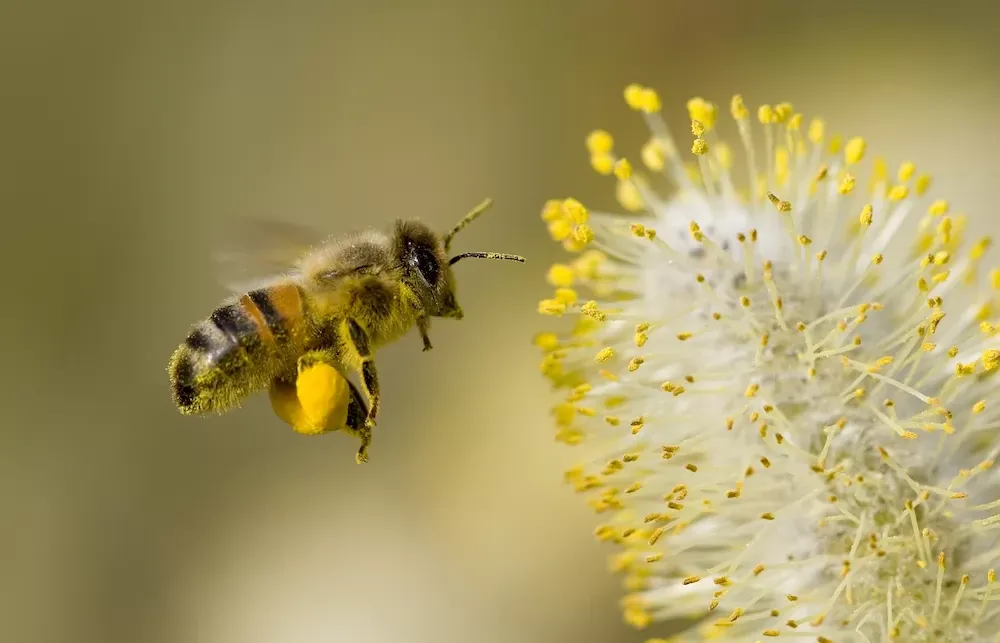
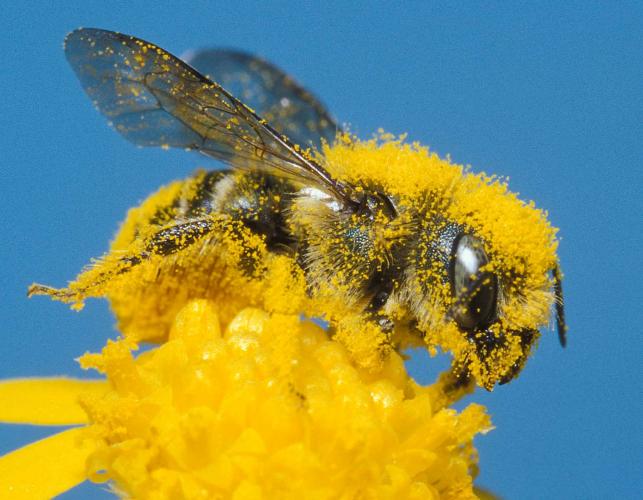
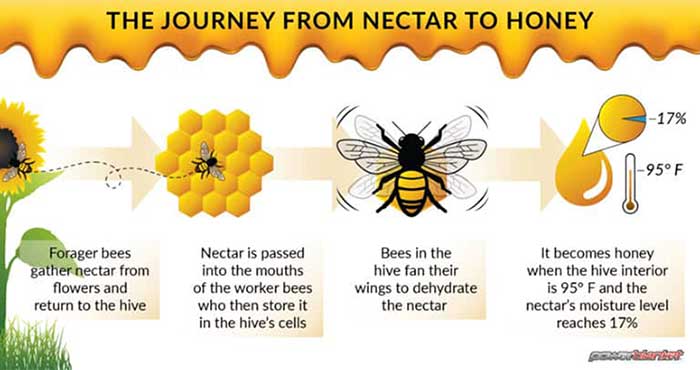
Nutritional Composition of Bee Pollen
Nature's little golden nuggets, bee pollen is incredibly nutrient-dense. It contains an impressive array of vitamins, minerals, enzymes, amino acids, antioxidants, and phytonutrients. While the exact composition may vary depending on the region and plant sources, bee pollen typically includes:
Vitamins: Bee pollen is rich in various vitamins, including vitamin C, vitamin E, vitamin A, vitamin D, and the B-complex vitamins (such as thiamin, riboflavin, niacin, and folic acid).
Minerals: It is a source of essential minerals like calcium, magnesium, potassium, zinc, selenium, iron, and copper.
Enzymes: Bee pollen contains a variety of enzymes that aid in digestion and help optimize nutrient absorption in the body.
Amino Acids: It provides a wide range of amino acids, which are the building blocks of proteins and play crucial roles in numerous bodily functions.
Antioxidants: Bee pollen is packed with antioxidants, such as flavonoids and phenolic compounds, which help combat oxidative stress and protect the body against cellular damage caused by free radicals.
Health Benefits of Bee Pollen
Nutrient Boost: Due to its impressive nutritional profile, bee pollen acts as a natural multivitamin, supplying the body with a wide array of essential nutrients. It can help fill nutritional gaps and support overall health and vitality.
Energy Enhancer: The carbohydrates, proteins, and B-complex vitamins in bee pollen provide a natural energy boost. Regular consumption of bee pollen may help combat fatigue, increase stamina, and improve athletic performance.
Immune Support: Bee pollen's immune-boosting properties can be attributed to its rich antioxidant content, vitamins, and minerals. It may help strengthen the immune system, reduce the frequency of common infections, and promote faster recovery.
Allergy Relief: Surprisingly, bee pollen can also alleviate allergies. It contains small amounts of pollen from various plants, acting as a natural immunotherapy. Regular consumption may help desensitize the body to pollen, reducing allergic reactions.
Digestive Aid: The enzymes present in bee pollen assist in the breakdown of food and enhance digestion. It can support a healthy gastrointestinal system and aid in nutrient absorption.
Skin Health: The antioxidants and nutrients in bee pollen contribute to healthier skin. It may help reduce inflammation, improve skin texture, and promote a youthful complexion.
Anti-Inflammatory Properties: Certain compounds in bee pollen possess anti-inflammatory effects. Regular consumption may help alleviate inflammation in the body, thereby reducing the risk of chronic diseases associated with inflammation.
How to Incorporate Bee Pollen into Your Diet
When it comes to consuming bee pollen, it is essential to source it from reputable beekeepers to ensure purity and quality. Bee pollen is available in granule or capsule form. It has a slightly sweet and floral taste, making it a versatile ingredient. Here are a few simple ways to incorporate bee pollen into your diet:
- Sprinkle it on smoothie bowls, yogurt, or cereal for a nutritious boost.
- Blend it into your favorite smoothies or juices.
- Use it as a topping for salads, fruit bowls, or desserts.
- Mix it with honey or nut butter for a delightful spread.
- Enjoy it as a standalone supplement in capsule form.
Note: If you have pollen allergies or are allergic to bee stings, it is crucial to exercise caution when consuming bee pollen. Start with a small amount and observe any adverse reactions.
Author's Choice of Bee Pollen
1.Alovitox Bee Pollen Powder
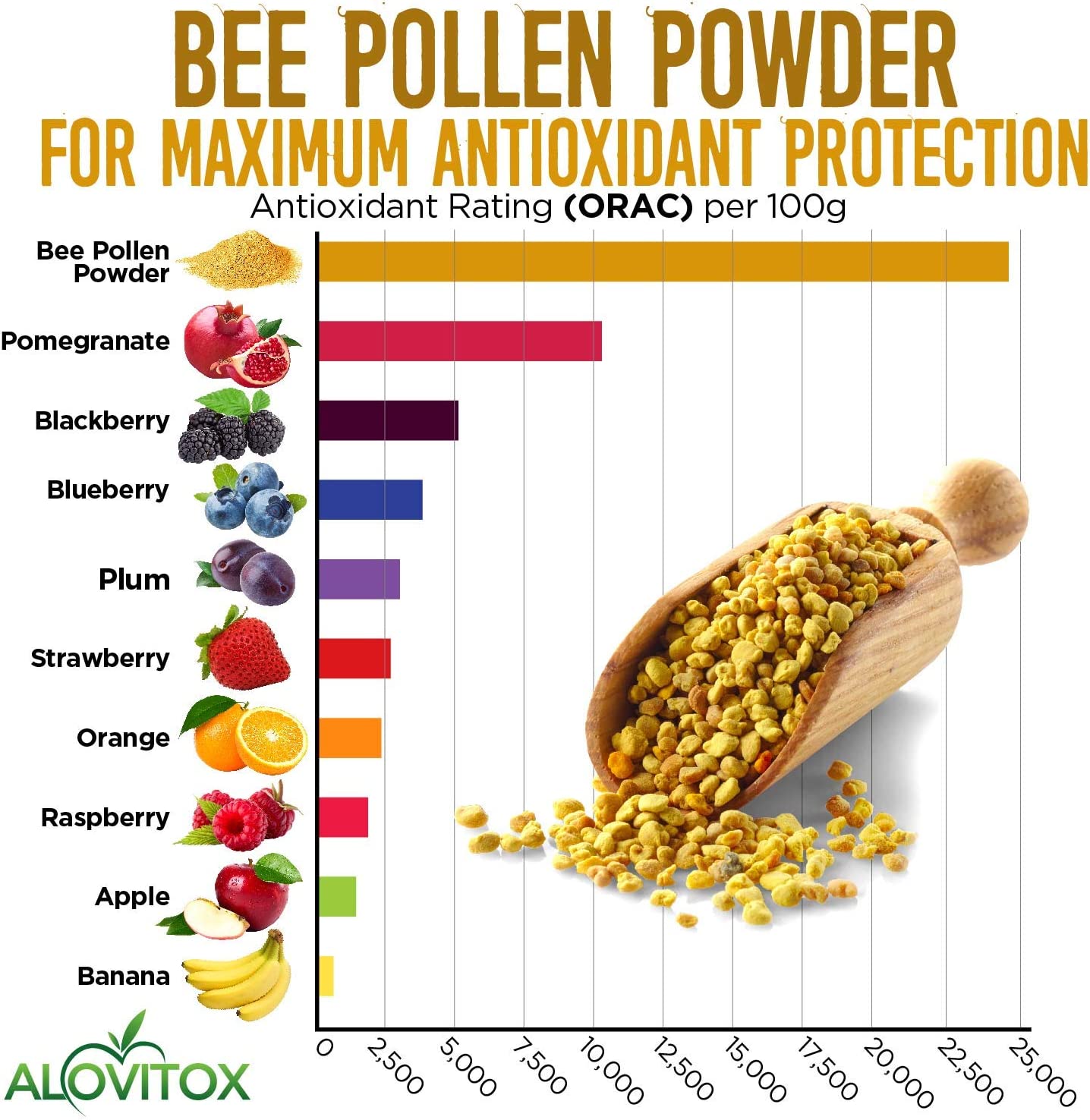
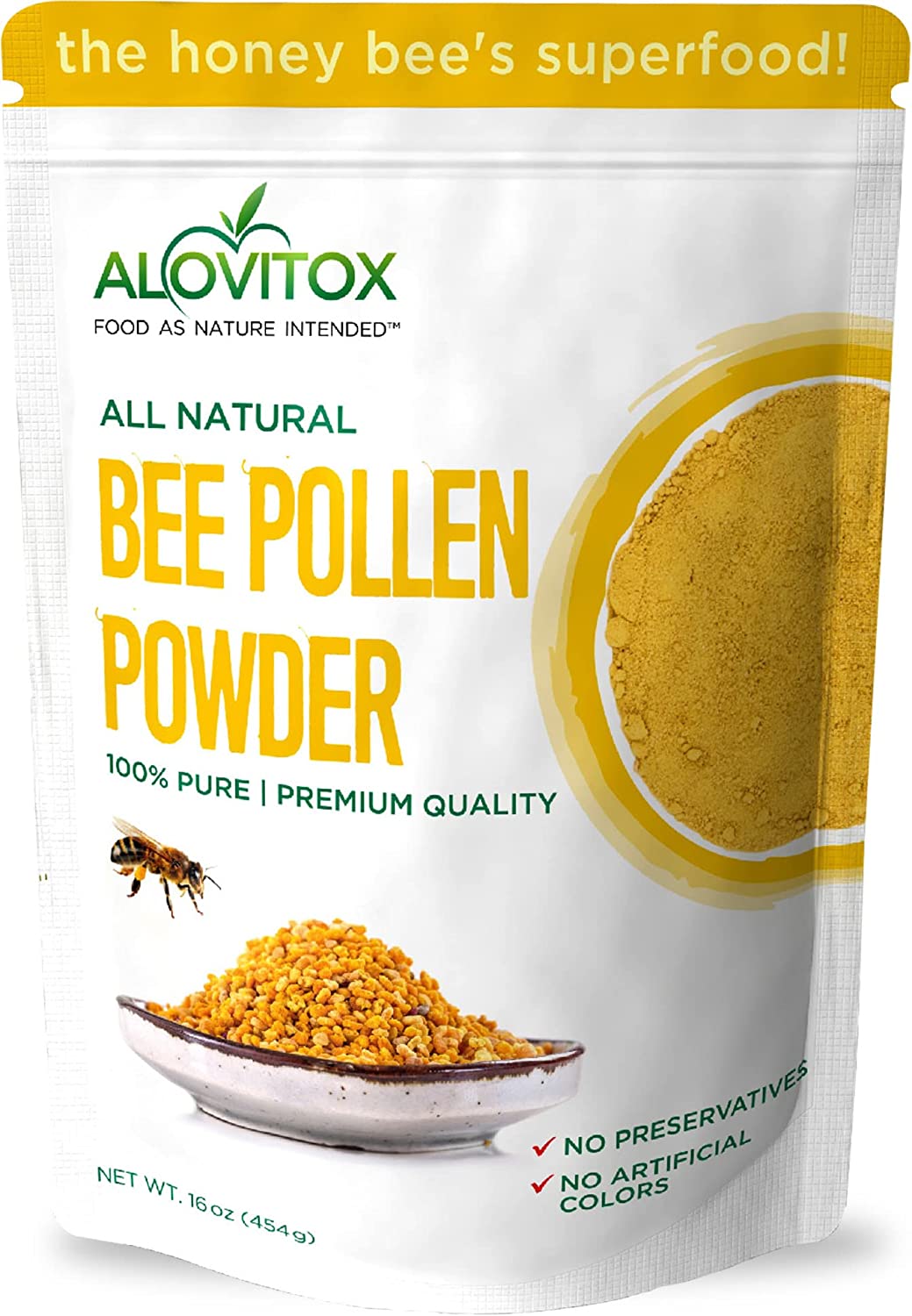
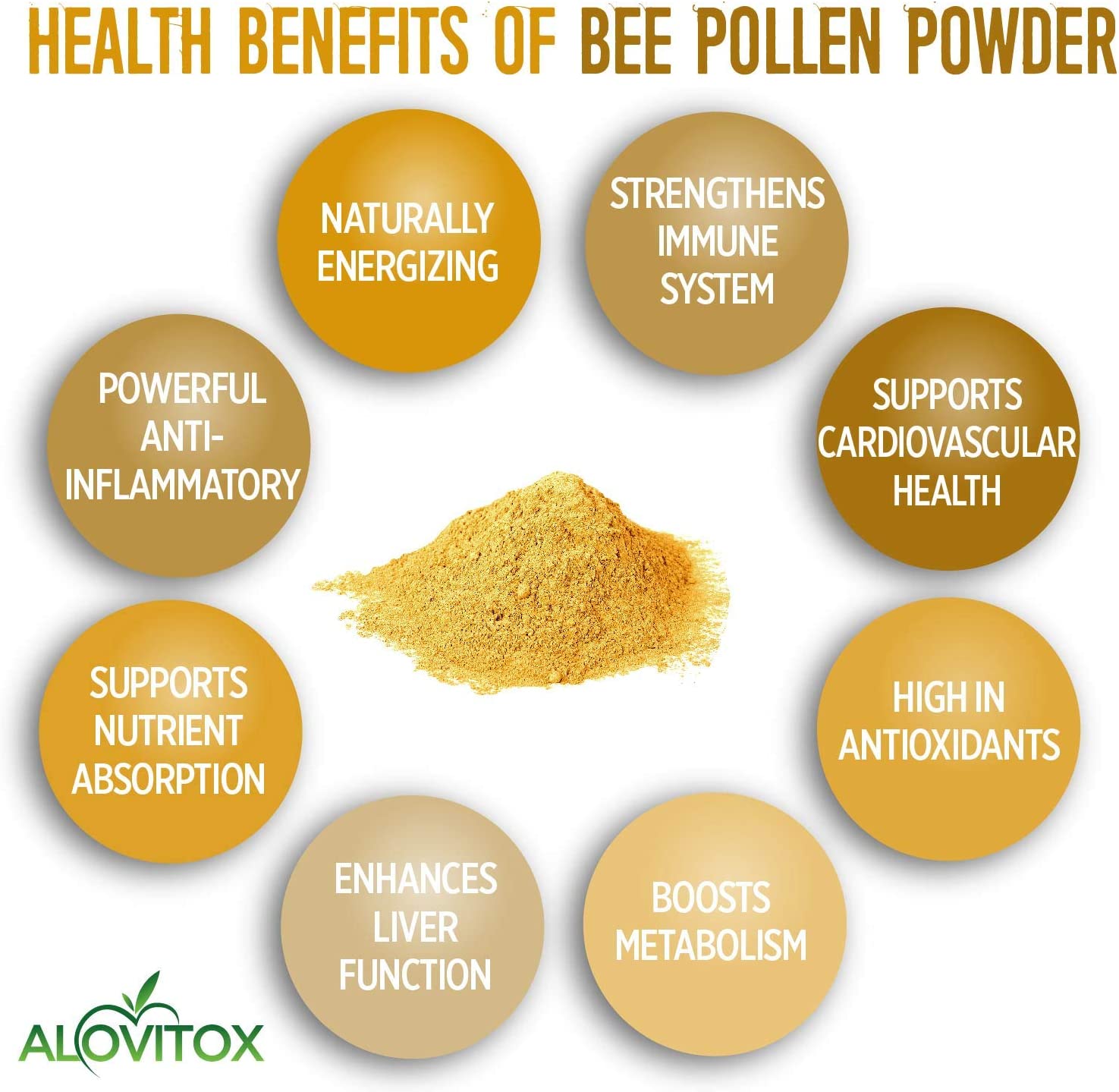
- Alovitox Bee Pollen Powder are gluten free & nutrient-dense powered -packed superfood. Organically Raw Bee Pollen has the same nutrients that a table full of vegetables, fruits, meats & even herbs have!
- This Protein Superfood contains significant vitamins, A, B2, B6, C, D & E, proteins, lipids, fatty acids, minerals, Carbohydrates, & antioxidants!
- This high-quality bee pollen is nearly 22% protein, with more protein per ounce than any other natural food. The Nutritional Yeast is naturally energizing & supports muscle recovery, making a great addition to pre & post work out shakes & smoothies.
2. Stakich Bee Pollen Granules
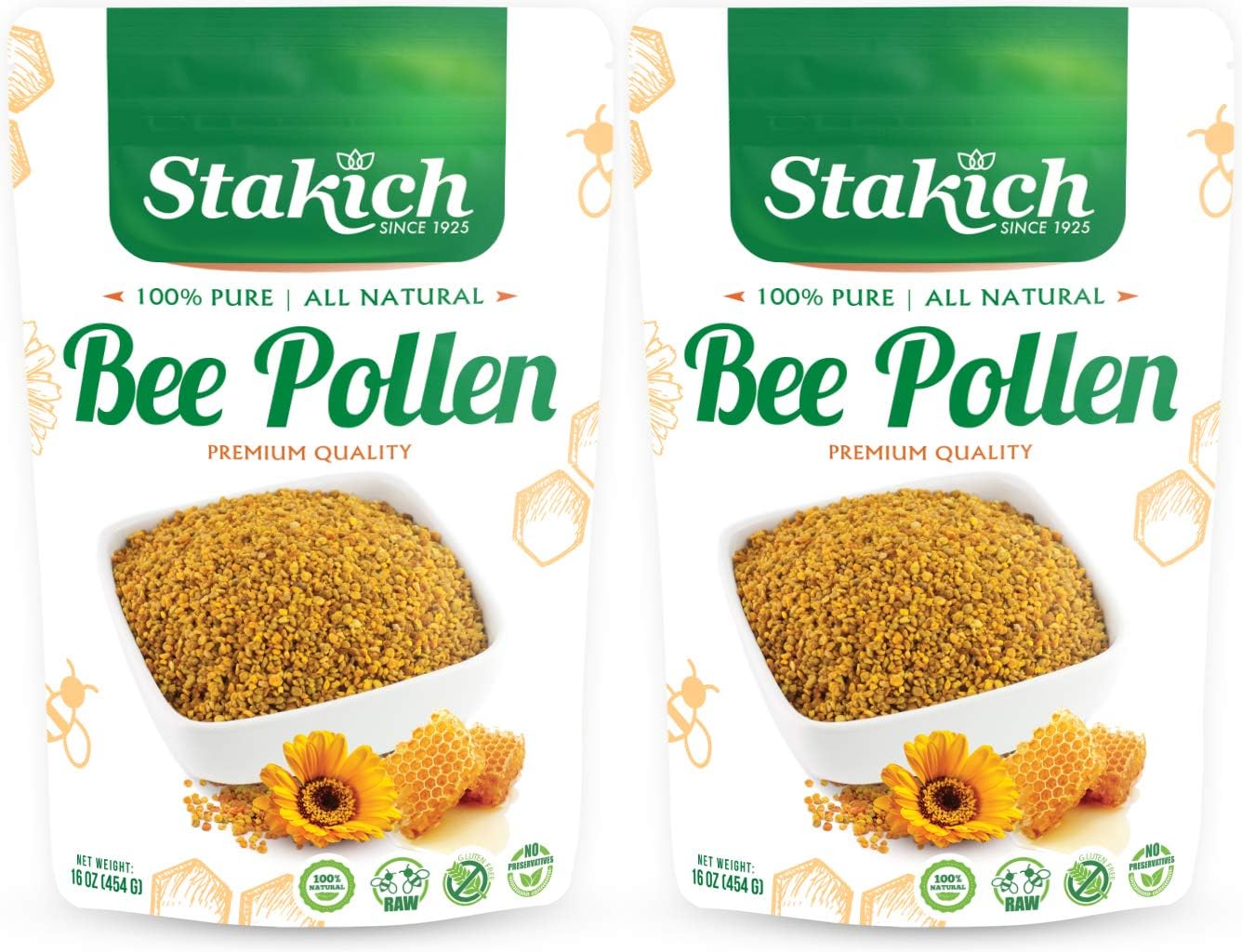
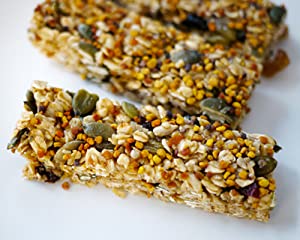
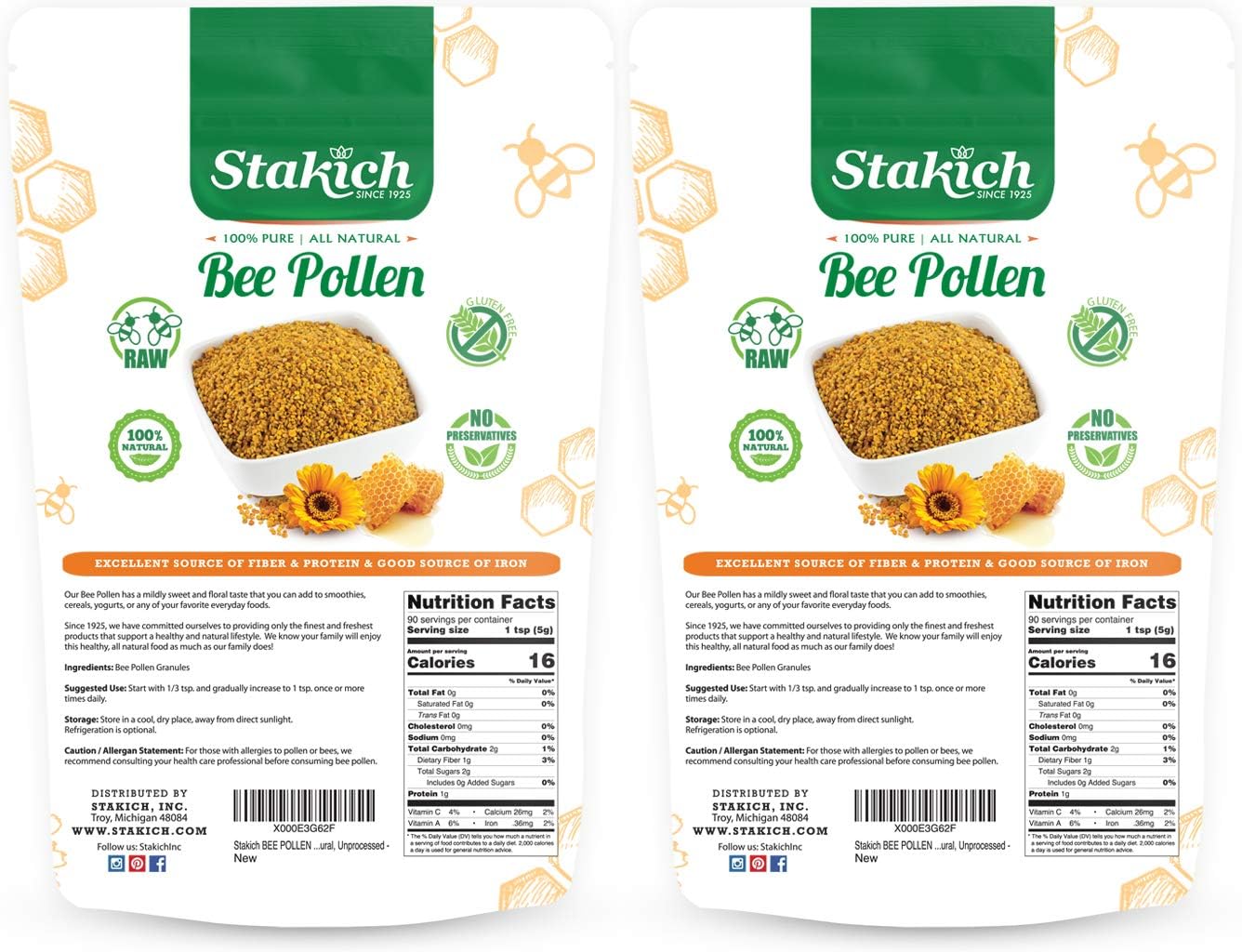
- Stakich Bee Pollen Granules are premium quality and all natural with absolutely NO additives - all of its enzymes are kept intact, providing you with a rich source of vitamins, especially B12 and E, minerals, and amino acids.
- It has a mildly sweet and floral taste that you can add to smoothies, cereals, yogurts, or any of your favorite everyday foods.
- Never heated or dried
- Naturally contains up to 40% high-quality vegetable protein and all the essential amino acids
- Naturally cholesterol, sodium, gluten and fat free
- Sprinkle onto your favorite everyday foods for an energy boost
Store in a cool, dry place, away from direct sunlight. Refrigeration is optional. Bee products should not be fed to infants under one year of age.
Tasty Recipes
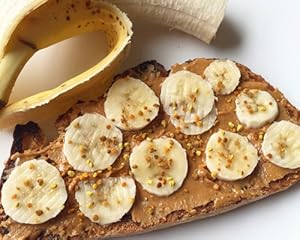
PB & Bee Pollen Toast
- 1 slice multigrain bread
- 2 Tbsp nut butter
- 1/2 banana, sliced
1 tsp Stakich Bee PollenSpread nut butter on slice of bread after toasting. Place banana slices on top and sprinkle with bee pollen.
Bee pollen also makes a great topping for smoothies, yogurt and cereals.

Antioxidant Fruit Bowl
- 1/2 cup blueberries
- 1/2 cup blackberries
- 3 small plums, sliced
- 1 peach or nectarine, sliced
- 1-2 tsp Stakich Bee Pollen
- 2-3 tbsp Stakich HoneyPrepare the fruit and gently combine in a bowl. Top with bee pollen and drizzle with honey.

Bee Pollen Granola Bars
- 2 ½ cups large flake oats, preferably gluten-free
- ½ cup raw buckwheat
- ¼ cup pumpkin seeds
- ¼ cup shredded coconut
- 2 tsp cinnamon
- ¼ tsp sea salt
- 2 tbsp virgin coconut oil
- 2 tbsp Stakich Raw Honey
- 2-4 tbsp Stakich Bee Pollen
- Preheat oven to 300 degrees F
- Combine all ingredients, except bee pollen, in large bowl. Using your hands to mix the coconut oil throughout the mixture.
- Spread onto cookie sheet.
- Cook for 25 minutes, making sure not to burn.
- Once removed from oven, allow to cool slightly before adding bee pollen. Store in an airtight container.
3. Bee Pollen from Dr. Danielle
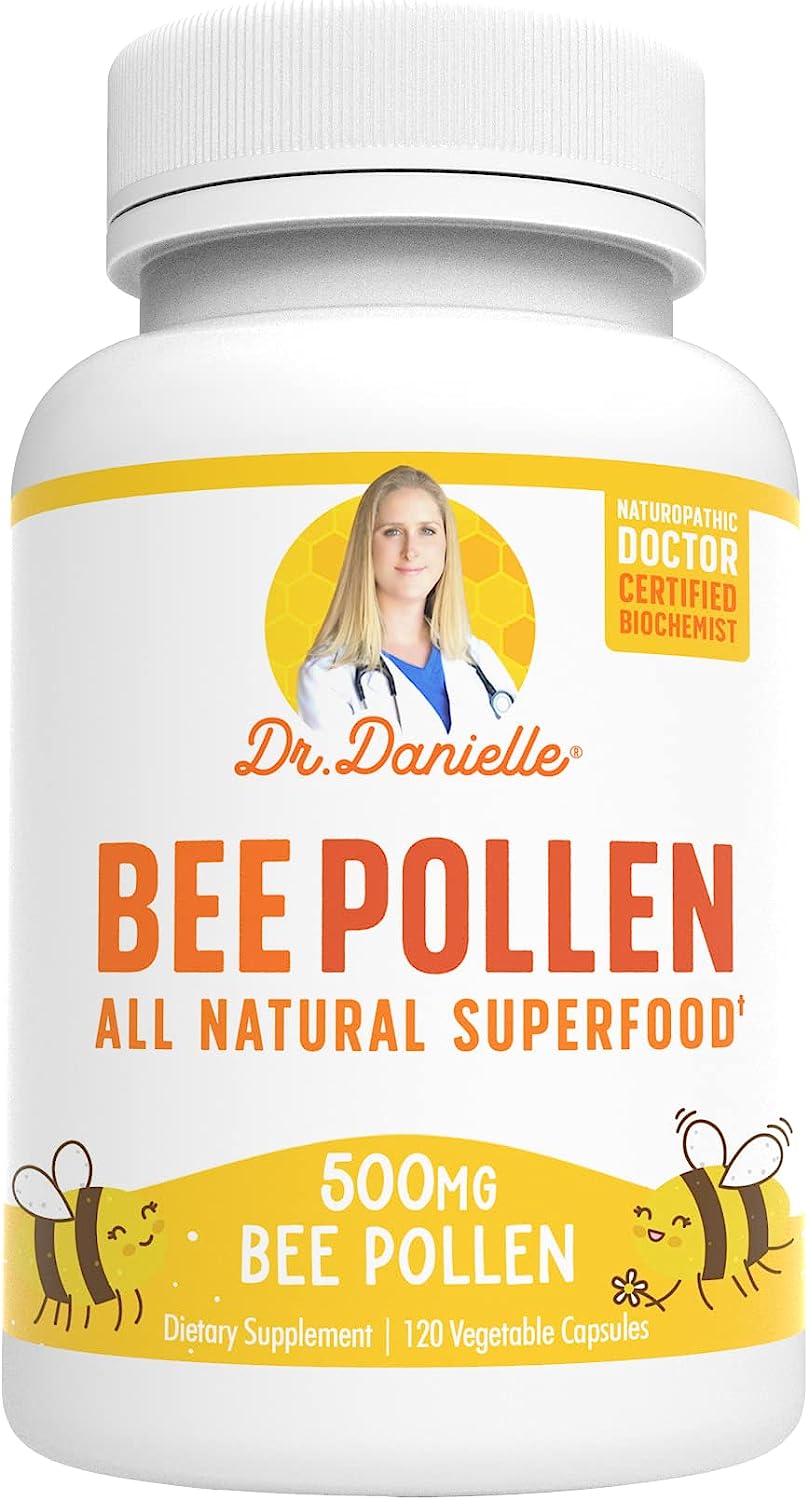
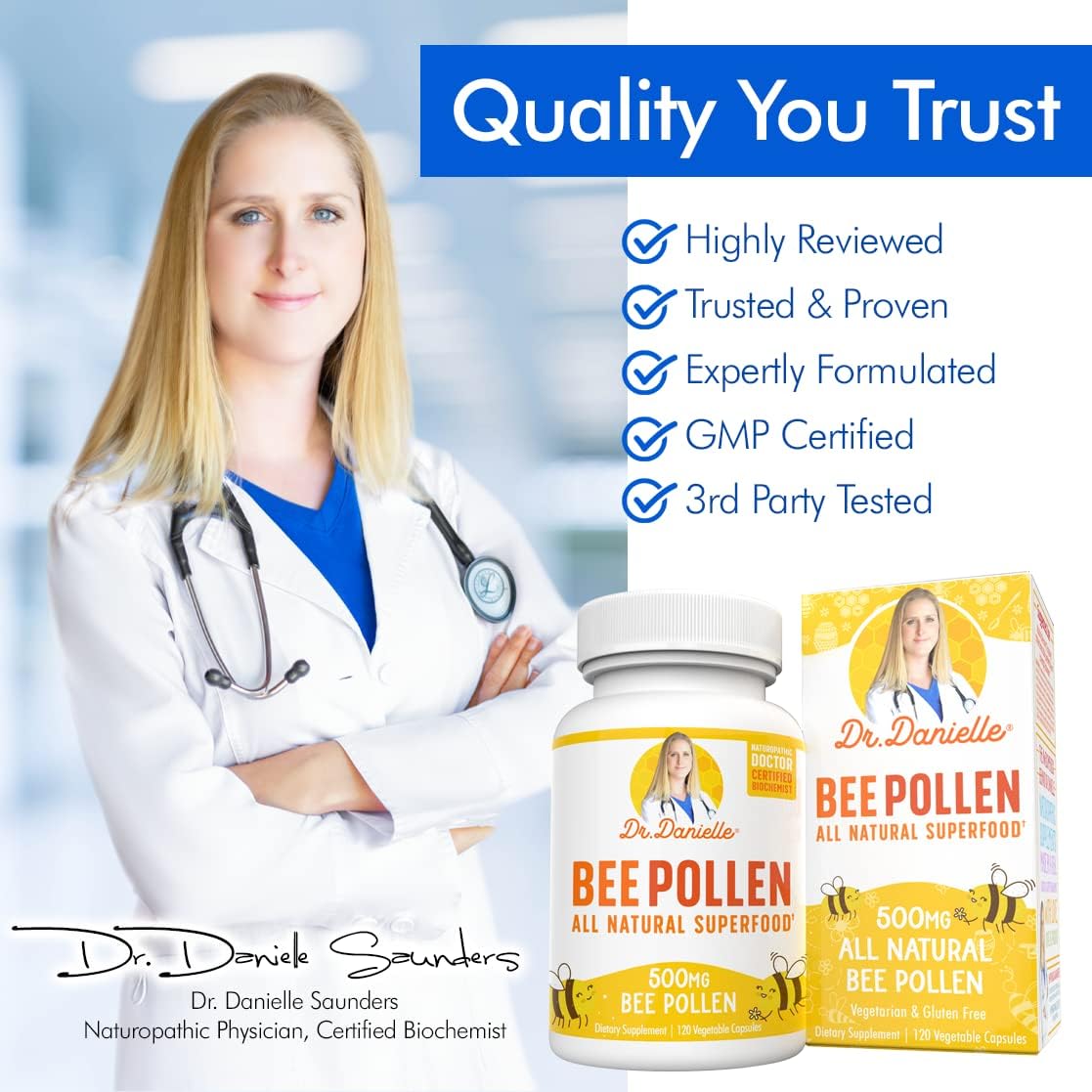
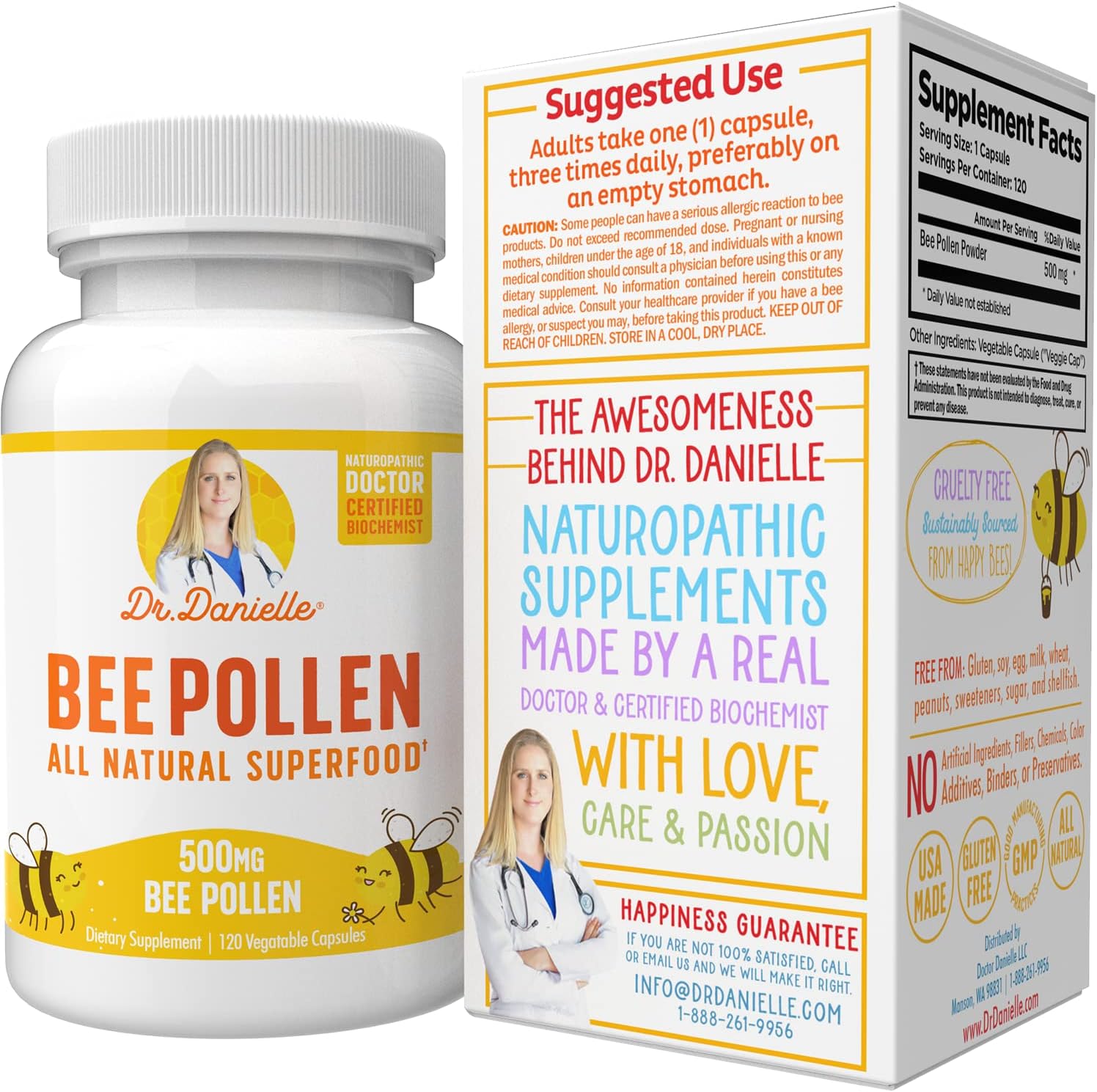
- Dr. Danielle is is a naturopathic doctor with intricate knowledge of the inter-workings of the chemical and biochemical pathways behind every ingredient used. Dr. Danielle is not only the actual face of the company, but is also the cornerstone to the exacting product formulation process that goes into every one of her products.
- Bee Pollen: Full of Vitamins & Nutrients Bee pollen is an exceptionally nutritious superfood, made by honey bees, loaded with essential vitamins and amino acids required by the human body.
- Formulated for potency and efficacy, Dr. Danielle's Bee Pollen capsules provide you the goodness of top-quality bee pollen. Made in USA with all-natural ingredients, this bee supplement supports your health and well-being.
Most FAQs about Bee Pollen Health Benefits
How is Bee Pollen Made?
Bee pollen is a natural product created by honeybees through a meticulous process. Here's an overview of how bee pollen is made:
Pollen Collection: Honeybees are responsible for collecting pollen from flowers. As bees visit flowers in search of nectar, their bodies attract pollen grains, which stick to their fuzzy body hairs.
Bees also have specialized structures on their hind legs called pollen baskets or corbiculae. They use their legs to comb the pollen from their bodies and transfer it to these baskets.
Packing and Transport: Once the bees have gathered an adequate amount of pollen, they use their front legs to pack the pollen into dense pellets.
These pellets are a combination of pollen grains, nectar or honey, enzymes, and bee saliva. The bees moisten the pollen with their saliva, which aids in compacting it into a solid mass.
Storage: The packed pollen pellets are then transported back to the beehive. Inside the hive, the bees store the pollen in specialized cells called "pollen baskets" or "pollen combs."
These cells are located near the brood cells, where the bees raise their larvae. The stored pollen serves as a vital source of nutrition for the growing bee larvae.
Fermentation and Ripening: Once the pollen is stored in the hive, the process of fermentation and ripening begins. Bees add enzymes and beneficial bacteria to the stored pollen, which help break down the pollen cell walls and enhance its nutritional value. This fermentation process also contributes to the preservation of the pollen.
Collection by Beekeepers: Beekeepers collect bee pollen by placing specially designed pollen traps at the hive entrance. These traps have small openings that scrape off the pollen pellets from the bees' hind legs as they enter the hive. The collected pollen is then carefully harvested from the traps.
Drying and Packaging: After harvesting, the bee pollen is typically dried at a low temperature to preserve its nutrients. This drying process removes excess moisture from the pollen, ensuring its longevity and preventing spoilage. Once dried, bee pollen is packaged and made available for consumption as granules or in capsule form.
It's important to note that beekeepers practice sustainable harvesting methods, ensuring that enough pollen is left in the hive to support the bees' nutritional needs and the growth of their colonies.
By collecting and transforming pollen into nutritious granules, honeybees play a crucial role in pollination and ecosystem health, while providing humans with a valuable superfood - bee pollen.
Does Bee Pollen Help with Weight Management?
Bee pollen has been suggested to aid in weight management, but it's important to note that scientific evidence supporting its specific role in weight loss or weight management is limited.
While bee pollen is a nutrient-dense food with potential health benefits, its impact on weight management should be understood in the context of an overall healthy diet and lifestyle.
Here are a few factors that may indirectly contribute to weight management:
Nutrient Density: Bee pollen is packed with essential nutrients, including proteins, vitamins, minerals, and antioxidants. Incorporating nutrient-dense foods like bee pollen into your diet can help provide the body with the necessary nutrients while potentially reducing cravings for less nutritious options.
Satiety: Protein is known to promote feelings of fullness and satiety. Bee pollen contains a significant amount of protein, which may help curb appetite and reduce overeating. However, it's important to note that bee pollen alone should not be considered a meal replacement or a sole weight management strategy.
Energy Boost: Bee pollen is a natural source of carbohydrates, which can provide an energy boost. This can potentially enhance physical activity levels and support an active lifestyle, which is beneficial for weight management.
Antioxidant Support: Bee pollen contains antioxidants, such as flavonoids, which may help combat oxidative stress and inflammation in the body. Some research suggests that oxidative stress and inflammation can play a role in weight management. By supporting overall health and reducing inflammation, bee pollen may indirectly contribute to weight management.
While these factors indicate the potential benefits of bee pollen for weight management, it's important to emphasize that it should not be considered a magic solution for weight loss.
Weight management is a complex process that involves multiple factors, including a balanced diet, regular physical activity, portion control, and overall lifestyle habits.
Before incorporating bee pollen or any new dietary supplement into your routine, it is recommended to consult with a healthcare professional or a registered dietitian, especially if you have any existing medical conditions or are taking medications.
They can provide personalized advice based on your specific needs and guide you in making informed decisions regarding weight management strategies.
Is Bee Pollen Better Than Honey?
Comparing bee pollen and honey is not a matter of one being inherently better than the other. They are distinct products with different compositions and benefits. Let's explore their characteristics:
Bee Pollen: Bee pollen is collected by bees from flowers and is a mixture of pollen grains, nectar or honey, bee saliva, and enzymes. It is nutrient-dense, containing vitamins, minerals, enzymes, amino acids, antioxidants, and phytonutrients. Bee pollen is commonly consumed as granules or in capsule form.
Honey: Honey, on the other hand, is produced by bees from the nectar of flowers. Bees collect nectar and transform it into honey through a process of enzymatic activity and evaporation.
Honey is primarily composed of sugars, mainly glucose and fructose, along with small amounts of enzymes, amino acids, vitamins, minerals, and antioxidants. It is commonly consumed as a natural sweetener and is available in liquid or crystallized form.
Both bee pollen and honey offer unique qualities and potential health benefits:
Nutrient Profile: Bee pollen is considered more nutritionally diverse, containing a broader range of vitamins, minerals, and other beneficial compounds due to its pollen composition. Honey, on the other hand, provides primarily carbohydrates (sugars) and some antioxidants and enzymes.
Allergies: Bee pollen may trigger allergies in individuals who are sensitive to pollen. On the contrary, consuming local raw honey is sometimes believed to help alleviate seasonal allergies.
The theory is that exposure to small amounts of local pollen through honey consumption could act as a form of immunotherapy, reducing allergic reactions. However, scientific evidence supporting this claim is limited.
Usage and Taste: Bee pollen is commonly consumed as a dietary supplement and can be added to various foods and beverages. It has a slightly sweet and floral taste, which can enhance the flavor of dishes. Honey, on the other hand, is widely used as a natural sweetener, and its taste profile varies depending on the floral source.
Ultimately, whether bee pollen or honey is "better" depends on your specific needs, preferences, and intended usage. If you're looking for a broad spectrum of nutrients, bee pollen may be a suitable choice.
On the other hand, if you're seeking a natural sweetener or potential relief from seasonal allergies, raw local honey could be a consideration.
It's worth noting that both bee pollen and honey are derived from bees and play vital roles in the ecosystem and food production. Choosing high-quality, ethically sourced products from reputable beekeepers is important to ensure purity and support sustainable beekeeping practices.
Conclusion
In conclusion, bee pollen stands out as a remarkable superfood with a myriad of health benefits. From its impressive nutrient profile to its potential in boosting energy, support the immune system, and promote overall well-being, bee pollen offers a natural and holistic approach to nutrition. So, why not embrace the buzz and harness the power of this tiny golden gem?
Be Healthy and Happy!
Relevant Reads>>>
